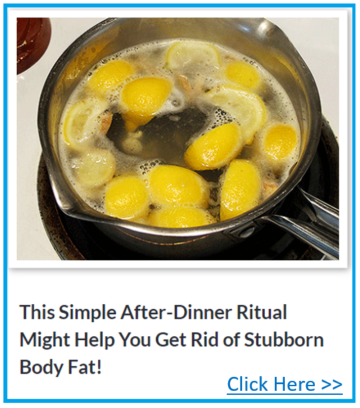Dating a widower can be a challenging experience. While it's never easy to navigate new relationships, dating a widower comes with its unique set of emotional complexities. One of the most common challenges that people face when dating a widower is feeling like they are second best.
It's understandable to feel insecure when dating someone who has experienced the loss of their partner. The deceased spouse may have been the love of their life, and it's natural to compare oneself to them. However, it's important to remember that each relationship is unique, and it's unfair to compare oneself to someone who is no longer there.
Navigating feelings of insecurity and jealousy can be challenging, but it's essential to remember that these feelings are normal. It's crucial to communicate openly and honestly with one's partner to address these feelings and work through them together. With patience, understanding, and compassion, it's possible to build a healthy and fulfilling relationship with a widower.
Key Takeaways
- Dating a widower can be emotionally complex, and feeling like second best is a common challenge.
- It's important to communicate openly and honestly with one's partner to address feelings of insecurity and jealousy.
- With patience, understanding, and compassion, it's possible to build a healthy and fulfilling relationship with a widower.
Understanding the Challenges of Dating a Widower
Dating a widower can be a challenging experience, especially if you are unfamiliar with the unique circumstances that come with it. It's important to understand that widowers have gone through a significant loss and may still be grieving. This can impact their emotions, behavior, and ability to form new relationships.
Here are some challenges that may arise when dating a widower:
1. Feeling Second Best
One of the most common challenges when dating a widower is feeling like you are second best. Even though your partner may be interested in you, they may still have strong feelings for their deceased spouse. This can leave you feeling insecure and unsure of your place in the relationship.
2. Dealing with Grief
Grief is a complex emotion that can manifest in different ways. Your partner may experience periods of sadness, anger, guilt, or even numbness. It's important to be patient and understanding during these times, and to give your partner the space they need to process their emotions.
3. Balancing the Past and the Present
When dating a widower, you may find that your partner talks about their deceased spouse frequently or keeps reminders of them around the house. It can be difficult to balance the past and the present, but it's important to remember that your partner's past is a part of who they are. It's okay to ask questions and show interest in their past, but also important to focus on building a future together.
4. Dealing with Family and Friends
Your partner's family and friends may have a strong attachment to their deceased spouse and may not be welcoming to a new partner. It's important to be respectful of their feelings and to understand that it may take time for them to accept you into their lives.
5. Moving at a Different Pace
Widowers may have a different timeline for moving on from their loss and forming new relationships. It's important to communicate openly with your partner about your expectations and to be patient if they need more time to adjust.
Overall, dating a widower can be a rewarding experience, but it's important to understand the challenges that come with it. By being patient, understanding, and respectful, you can build a strong and meaningful relationship with your partner.
The Emotional Aspects: Grief and Guilt
Dating a widower can be emotionally challenging, especially when it comes to dealing with grief and guilt. The grieving process is unique to every individual, and it can be difficult for someone who has not experienced the loss of a spouse to fully understand what their partner is going through. It is essential to recognize that the widower may still be grieving and that their emotional process may be different from what their partner is used to.
The deceased spouse will always hold a special place in the widower's heart, and it is essential to accept this fact. It is normal for the widower to talk about their late spouse, and it is crucial to listen and show empathy. The widower may experience a range of emotions, including sadness, anger, guilt, and confusion. It is essential to be patient and understanding, as the grieving process can take time.
Guilt is another emotion that a widower may experience, and it can be challenging for them to move on with their life. They may feel guilty for wanting to start a new relationship or for feeling happy when their late spouse is no longer around. It is essential to reassure the widower that it is okay to move on and that they deserve to be happy.
The grieving process can be traumatic, and it is crucial to be supportive and understanding. It is important to recognize that the widower may need time to heal and that they may need to take things slow. It is essential to communicate openly and honestly and to be respectful of each other's feelings.
In conclusion, the emotional aspects of dating a widower can be challenging, but with patience, understanding, and empathy, it is possible to build a healthy and fulfilling relationship. It is important to recognize that the widower may still be grieving and that their emotional process may be different from what their partner is used to. By being supportive and understanding, it is possible to help the widower heal and move on with their life.
Feeling Second Best: Dealing with Insecurity
When dating a widower, it is normal to experience feelings of insecurity and second best. It can be challenging to feel like you are competing with a deceased spouse who may have been idealized in the widower's mind. However, it is essential to remember that you are in a unique relationship with your own strengths and qualities that the widower values.
One way to deal with feelings of insecurity is to focus on building your self-confidence. Recognize your worth and the value you bring to the relationship. Make a list of your positive qualities and remind yourself of them often. It is also helpful to engage in activities that make you feel good about yourself, such as exercise or hobbies.
Another way to manage feelings of insecurity is to communicate openly with your partner. Let them know how you feel and ask for reassurance when you need it. It is important to have a dialogue about your concerns and work together to address them.
It is also crucial to avoid comparing yourself to the deceased spouse. Remember that your relationship with the widower is unique and different from their past relationship. Try to focus on the present and the future rather than dwelling on the past.
Finally, it is essential to recognize that feeling insecure is normal in any relationship. It is okay to have insecurities, and it does not mean that the relationship is doomed to fail. With open communication, self-confidence, and a focus on the present, you can work through feelings of insecurity and build a strong relationship with your widower partner.
Navigating New Relationships with a Widower
Dating a widower can be challenging, but it can also be rewarding. When starting a new romantic relationship with a widower, it's important to keep in mind that he may still be grieving the loss of his late spouse. However, with patience and understanding, you can build a healthy and committed relationship together.
Here are some tips for navigating new relationships with a widower:
1. Be Patient
It's important to understand that a widower may need more time to process his grief than someone who has not experienced such a loss. He may have moments of sadness or anger that seem to come out of nowhere. It's important to be patient and understanding during these times.
2. Communicate Openly
Communication is key in any healthy relationship, but it's especially important when dating a widower. Be open and honest about your feelings and expectations, and encourage him to do the same. This will help build trust and understanding between the two of you.
3. Respect His Late Spouse
It's important to remember that his late spouse was an important part of his life, and he may still have feelings for her. It's important to show respect for their relationship and not try to compete with her memory. Instead, focus on building your own relationship together.
4. Take Things Slow
It's important to take things slow when dating a widower. Rushing into things can be overwhelming for both of you. Take the time to get to know each other and build a strong foundation for your relationship.
5. Seek Support
Dating a widower can be challenging, and it's important to seek support when you need it. Whether it's talking to friends or family, or seeking the help of a therapist, having a support system in place can help you navigate the ups and downs of your relationship.
By keeping these tips in mind, you can build a healthy and committed relationship with a widower. Remember to be patient, communicate openly, respect his late spouse, take things slow, and seek support when you need it.
The Role of the Deceased Spouse's Memories
When dating a widower, it's important to understand that the deceased spouse will always hold a special place in their heart. Memories of their life together will be a part of their life forever. While it's natural to feel jealous or insecure about this, it's important to remember that the widower is not trying to replace their deceased spouse, but rather honor their memory.
The role of the deceased spouse's memories can vary depending on the individual and their relationship with their late spouse. In some cases, the widower may have a lot of physical reminders of their deceased spouse, such as photographs or personal belongings. In other cases, the memories may be more intangible, such as memories of special moments or conversations.
It's important for the new partner to understand and respect the role of these memories. This means not trying to erase or replace them, but rather acknowledging their importance and finding a way to incorporate them into the new relationship. This may involve discussing the deceased spouse and their memories together, or finding ways to honor their memory in a meaningful way.
Ultimately, the role of the deceased spouse's memories is to provide comfort and a sense of continuity for the widower. By honoring their memory and acknowledging their importance, the new partner can help to create a loving and supportive environment for both themselves and the widower.
Handling Family Dynamics
When dating a widower, family dynamics can be a sensitive issue. It is important to approach the situation with sensitivity and respect for all parties involved. Here are some tips for handling family dynamics when dating a widower:
1. Respect the Deceased Spouse
It is important to understand that the deceased spouse will always hold a special place in the widower's heart. When interacting with the widower's family, it is important to show respect for the deceased spouse and acknowledge their memory. This can be done by asking questions about the deceased spouse and listening to stories about their life.
2. Be Prepared for Family Reactions
When introducing a new partner to a widower's family, there may be a range of reactions. Some family members may be welcoming and accepting, while others may be more reserved or even hostile. It is important to be prepared for these reactions and understand that they may not be a reflection of your relationship with the widower.
3. Communicate Openly and Honestly
Clear communication is key when navigating family dynamics as a couple. It is important to communicate openly and honestly with the widower about any concerns or issues that arise with their family. It is also important to listen to their perspective and work together to find solutions.
4. Respect Boundaries with Children
If the widower has children, it is important to respect their boundaries and understand that they may need time to adjust to a new partner. It is important to take things slowly and not rush into a new role as a parental figure. It is also important to communicate openly with the children and be respectful of their feelings and needs.
Overall, handling family dynamics when dating a widower requires sensitivity, patience, and clear communication. By approaching the situation with respect and understanding, couples can navigate these challenges and build strong relationships with each other and their families.
Communication: Key to Overcoming Challenges
When dating a widower, communication is key to overcoming challenges. It's important to have heart-to-heart conversations with your partner to understand their feelings and needs. This can help you build a strong foundation of trust and respect in your relationship.
One of the main challenges of dating a widower is that they may still be grieving. It's important to be patient and understanding of their emotions. Encourage your partner to express their feelings and listen actively. This can help them feel supported and validated.
Another challenge is feeling like second best. It's important to address this issue directly and have an open conversation about it. Express your feelings and concerns in a respectful and non-judgmental way. This can help your partner understand your perspective and work towards a solution together.
It's also important to communicate your own emotional process. Check in with yourself often and ensure that the relationship is the healthiest choice for you. If you're feeling overwhelmed or unsure, it's important to express this to your partner. This can help you both work towards a solution that works for both of you.
In summary, communication is key to overcoming challenges when dating a widower. Have heart-to-heart conversations, be patient and understanding, address issues directly, and communicate your own emotional process. With open and honest communication, you can build a strong and healthy relationship with your widowed partner.
Recognizing and Addressing Red Flags
When dating a widower, it is important to be aware of any red flags that may arise in the relationship. Red flags are warning signs that something may be amiss and require further investigation. Here are some common red flags to look out for when dating a widower:
1. Hiding the Relationship
If the widower is hesitant to tell others about the relationship or keeps it a secret, it could be a red flag. It may indicate that they are not ready to move on from their previous relationship or that they are not serious about the current one.
2. Comparing the New Partner to the Deceased Spouse
If the widower constantly compares their new partner to their deceased spouse, it could be a red flag. It may indicate that they are not fully over their loss or that they are not ready to commit to a new relationship.
3. Refusing to Let Go of the Past
If the widower is stuck in the past and refuses to let go of their previous relationship, it could be a red flag. It may indicate that they are not ready to move on or that they are not emotionally available for a new relationship.
4. Rushing into a New Relationship
If the widower rushes into a new relationship soon after their loss, it could be a red flag. It may indicate that they are using the new relationship as a way to avoid dealing with their grief or that they are not emotionally ready for a new relationship.
How to Address Red Flags
If any of these red flags arise in a relationship with a widower, it is important to address them. The first step is to have an open and honest conversation with the widower about your concerns. It is important to approach the conversation with empathy and understanding, as the widower may still be grieving.
If the red flags persist, it may be necessary to take a step back from the relationship and reevaluate whether it is the right choice for you. It is important to prioritize your own emotional well-being and not stay in a relationship that is not healthy for you.
In conclusion, recognizing and addressing red flags is an important part of dating a widower. By being aware of these warning signs and taking action when necessary, you can ensure that you are in a healthy and fulfilling relationship.
The Role of Support Systems
Dating a widower can be emotionally challenging, and it's important to have a support system in place. This can include friends, family members, or even a support group for those who have lost a partner. Talking to others who have been in a similar situation can be helpful in understanding and processing your own emotions.
It's also important to consider seeking the help of a counselor or therapist. A counselor can provide a safe and confidential space to discuss any concerns or issues that may arise in the relationship. They can also help you navigate the complexities of dating a widower and provide guidance on how to communicate effectively with your partner.
In addition to seeking support outside of the relationship, it's important to have open and honest communication with the widower. This means being transparent about your feelings and needs, as well as being willing to listen to their perspective. It's important to remember that grief is a complex and ongoing process, and it may take time for both partners to fully understand and support each other.
Ultimately, the role of support systems in dating a widower is to provide a safe and supportive environment for both partners to navigate the challenges that may arise. By seeking support from friends, family, or a counselor, and by being open and honest with each other, couples can build a strong and healthy relationship despite the challenges of grief and loss.
Taking Things Slow: Patience in Dating a Widower
When dating a widower, it's important to take things slow and be patient. The widower is likely still grieving the loss of their spouse, and may need time to process their feelings and emotions before entering into a new relationship.
Patience is key when dating a widower. It's important to give the widower space and time to grieve and come to terms with their loss. Rushing into a new relationship too quickly can be overwhelming and may cause the widower to feel like they are betraying their deceased spouse.
It's important to communicate openly and honestly with the widower about your expectations and boundaries in the relationship. This will help ensure that both parties are on the same page and can move forward at a pace that feels comfortable for everyone involved.
Taking things slow also means being understanding and compassionate towards the widower. They may have good days and bad days, and it's important to be patient and supportive during both.
In summary, dating a widower requires patience and understanding. Taking things slow can help ensure that both parties are comfortable and ready to move forward in the relationship. Communication and compassion are key to building a strong and healthy relationship with a widower.
Understanding Emotional Unavailability and Commitment Issues
Dating a widower can be challenging, especially when it comes to emotional unavailability and commitment issues. It's not uncommon for a widower to struggle with these issues, as they may still be grieving the loss of their spouse and not ready to fully commit to a new relationship.
Emotional unavailability is a common problem for many people, but it can be especially challenging when dating a widower. A widower may have a difficult time opening up emotionally, as they may still be processing their grief and not ready to share their feelings with someone new. This can make it hard to build a strong emotional connection, which is essential for a healthy relationship.
Commitment issues are another common problem when dating a widower. A widower may be hesitant to fully commit to a new relationship, as they may still be mourning the loss of their spouse and not ready to move on. This can lead to a lot of uncertainty and anxiety in the relationship, as the widower may be unsure of their feelings and not ready to make a long-term commitment.
It's important to understand that these issues are not a reflection of the widower's feelings towards their partner. Instead, they are a natural part of the grieving process and can take time to work through. It's important to be patient and understanding, and to give the widower the space they need to process their emotions.
If you're dating a widower and struggling with emotional unavailability or commitment issues, it's important to communicate openly and honestly with your partner. Let them know how you're feeling and what you need from the relationship, but also be willing to listen to their perspective and give them the time and space they need to work through their emotions.
In summary, emotional unavailability and commitment issues are common problems when dating a widower. It's important to be patient, understanding, and communicate openly with your partner to build a healthy and fulfilling relationship.
Dealing with Feelings of Jealousy, Anxiety, and Competitiveness
Dating a widower can bring up complex emotions, including jealousy, anxiety, and competitiveness. It's natural to compare oneself to the deceased partner, wonder if they measure up, and feel like a second choice. However, it's important to remember that the widower is with you for a reason and that you have unique qualities that complement their life.
One way to deal with feelings of jealousy is to focus on the present and the future instead of the past. Remind yourself of the positive aspects of your relationship and the things that you and your partner share. It's also helpful to communicate your feelings with your partner in a non-confrontational way. They may not even be aware of how you're feeling, and talking about it can help you both work through any issues.
Anxiety is another common emotion when dating a widower. It's normal to worry about whether you're doing things right, if you're being compared to the previous partner, or if your partner may still have feelings for their late spouse. However, it's important to remember that everyone grieves differently and that your partner is with you because they want to be. You can also work on building your own self-confidence and self-worth, which can help alleviate feelings of anxiety.
Competitiveness can arise when comparing yourself to the deceased partner. It's important to remember that you and the previous partner are different people with different qualities and that it's not a competition. Instead, focus on building a relationship that works for both of you and that is based on mutual respect and understanding.
Overall, dealing with jealousy, anxiety, and competitiveness when dating a widower requires communication, self-reflection, and a focus on the present and future. It's important to remember that your partner is with you for a reason and that you have unique qualities that complement their life.
Compassion: A Crucial Element in Dating a Widow
When dating a widow, it is important to remember that they have experienced a significant loss in their life. They may still be grieving and struggling to come to terms with the loss of their spouse. As a result, they may have difficulty fully committing to a new relationship or may struggle with feelings of guilt or disloyalty.
One of the most important elements in dating a widow is compassion. Showing compassion means being understanding and supportive of the widow's feelings, even if they are difficult to understand or relate to. It means being patient and respectful of their grieving process and not pressuring them to move on before they are ready.
Compassion also means being willing to listen and communicate openly with the widow. It is important to ask how they are feeling and to be willing to listen to their thoughts and concerns. This can help build trust and strengthen the relationship over time.
Another important aspect of compassion is being willing to compromise and make adjustments in the relationship. For example, the widow may still have photos or mementos of their late spouse around the house. While this may be difficult for a new partner to see, it is important to be understanding and respectful of the widow's need to hold onto these memories.
In conclusion, dating a widow can be a challenging and emotional experience, but with compassion and understanding, it is possible to build a strong and fulfilling relationship. By being patient, respectful, and supportive of the widow's feelings, you can help them heal and move forward while also building a meaningful connection.
Understanding the Concept of Rebound and Baggage
When dating a widower, it's important to understand the concept of rebound and baggage. Rebound refers to the tendency of some people to jump into a new relationship shortly after the end of a previous one. This can be a coping mechanism to deal with the pain of the previous relationship or to avoid being alone.
Rebound relationships can be challenging because the person may not be emotionally ready for a new relationship. They may still be grieving the loss of their previous partner, or they may not have had enough time to process their emotions. This can lead to a lack of emotional availability, which can be frustrating for the new partner.
Baggage refers to the emotional baggage that people bring into a new relationship. This can include unresolved issues from previous relationships, such as trust issues or a fear of commitment. It can also include unresolved emotional issues, such as unresolved grief or trauma.
When dating a widower, it's important to be aware of their emotional baggage and to be patient and understanding. It's also important to communicate openly and honestly about any concerns or issues that arise. This can help to build trust and create a stronger, healthier relationship.
In summary, rebound and baggage are important concepts to understand when dating a widower. By being aware of these concepts and communicating openly and honestly, it's possible to build a strong and healthy relationship.
Frequently Asked Questions
What are the emotions of dating a widower?
Dating a widower can be an emotional rollercoaster. You may experience a range of emotions, including jealousy, anxiety, fear, anger, and sadness. It is normal to feel like you are in competition with the deceased spouse, and you may feel guilty for wanting your partner's attention. It is important to communicate openly and honestly with your partner about your feelings.
Can a widower truly love again?
Yes, a widower can truly love again. Losing a spouse does not mean that the widower cannot love again. However, it may take time for the widower to be ready to enter into a new relationship. It is important to be patient and understanding.
How fast do widowers move on?
There is no set timeline for how fast widowers move on. Everyone grieves differently, and some widowers may be ready to date soon after their spouse's death, while others may take years to feel ready. It is important to respect the widower's grieving process and not rush them into a new relationship.
Living in the shadow of a deceased wife
One of the biggest challenges of dating a widower is living in the shadow of their deceased wife. It is common to feel like you are competing with the memory of the deceased spouse. It is important to remember that the widower's love for their deceased spouse does not diminish their love for you. It is important to communicate with your partner and work through any feelings of inadequacy.
Signs you are his second choice
It is important to be aware of signs that you may be the widower's second choice. Some signs may include the widower constantly talking about their deceased spouse, not introducing you to their family and friends, or not making time for you. If you feel like you are not a priority in the relationship, it is important to communicate with your partner and evaluate whether the relationship is right for you.
To the girl who is always second choice
If you feel like you are always the second choice in a relationship with a widower, it is important to remember your worth. You deserve to be with someone who values and prioritizes you. It may be difficult, but it is important to communicate with your partner and evaluate whether the relationship is meeting your needs. Remember that you deserve to be happy and loved fully.





























